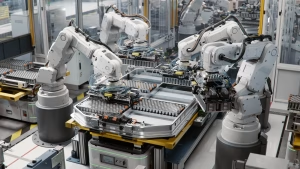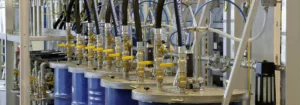Industrial lifting platforms, essential components in various industries, require powerful and reliable motors to elevate heavy loads. These motors, often customized to specific applications, play a crucial role in ensuring safe and efficient operations.
Types of Motors for Lifting Platforms
- AC Induction Motors: A popular choice due to their simplicity, durability, and cost-effectiveness. They are well-suited for general-purpose lifting applications.
- DC Motors: Offer precise control and variable speed, making them ideal for applications requiring accurate positioning or frequent starts and stops.
- Stepper Motors: Known for their high torque-to-size ratio and precise positioning capabilities, stepper motors are commonly used in lifting platforms where precise control is essential.
- Servo Motors: Provide exceptional accuracy, speed, and responsiveness, making them suitable for demanding applications such as high-speed elevators and automated material handling systems.
Factors to Consider When Choosing a Motor
- Load Capacity: The motor must be able to handle the maximum weight it will need to lift.
- Lifting Speed: The desired speed of the lifting platform will determine the required motor power.
- Duty Cycle: The frequency and duration of lifting operations will influence the motor’s operating characteristics.
- Environmental Conditions: The motor must be suitable for the operating environment, considering factors such as temperature, humidity, and exposure to corrosive substances.
- Energy Efficiency: Choosing an energy-efficient motor can help reduce operating costs and environmental impact.
Key Features of Industrial Lifting Platform Motors
- High Torque: Motors for lifting platforms must be able to generate sufficient torque to overcome the weight of the load and any frictional forces.
- Reliability: The motor should be designed for continuous operation and have a long service life.
- Safety Features: Safety features such as overload protection, thermal overload protection, and emergency stop mechanisms are essential to prevent accidents.
- Maintenance: The motor should be easy to maintain and have readily available spare parts.
Applications of Lifting Platforms
Industrial lifting platforms are used in a wide range of industries, including:
- Manufacturing: Assembly lines, material handling, and maintenance.
- Construction: Elevators, cranes, and construction equipment.
- Warehousing and Logistics: Storage and retrieval systems.
- Automotive: Vehicle assembly and maintenance.
- Oil and Gas: Offshore platforms and drilling operations.
- Healthcare: Patient lifts and medical equipment.
- Retail: Automated inventory management systems.
- Entertainment: Stage lifts and special effects equipment.
Additional Considerations for Motor Selection
- Control System: The motor must be compatible with the control system used to operate the lifting platform.
- Maintenance and Repair: Consider the availability of spare parts and maintenance services in the local area.
- Noise and Vibration: If noise or vibration is a concern, choose a motor with low noise and vibration levels.
- Installation and Space Requirements: The motor must fit within the available space and be easy to install.
- Cost: The initial cost of the motor, as well as ongoing maintenance and energy costs, should be considered.
By carefully evaluating these factors, businesses can select the optimal motor for their industrial lifting platform applications, ensuring efficient, safe, and reliable operations.
Its unique and efficient functionality have made the air motor an ideal choice of power for many of today’s applications. Are you looking for more information? If you have any questions about how air motor might be used in your application, feel free to reach out to us anytime.


